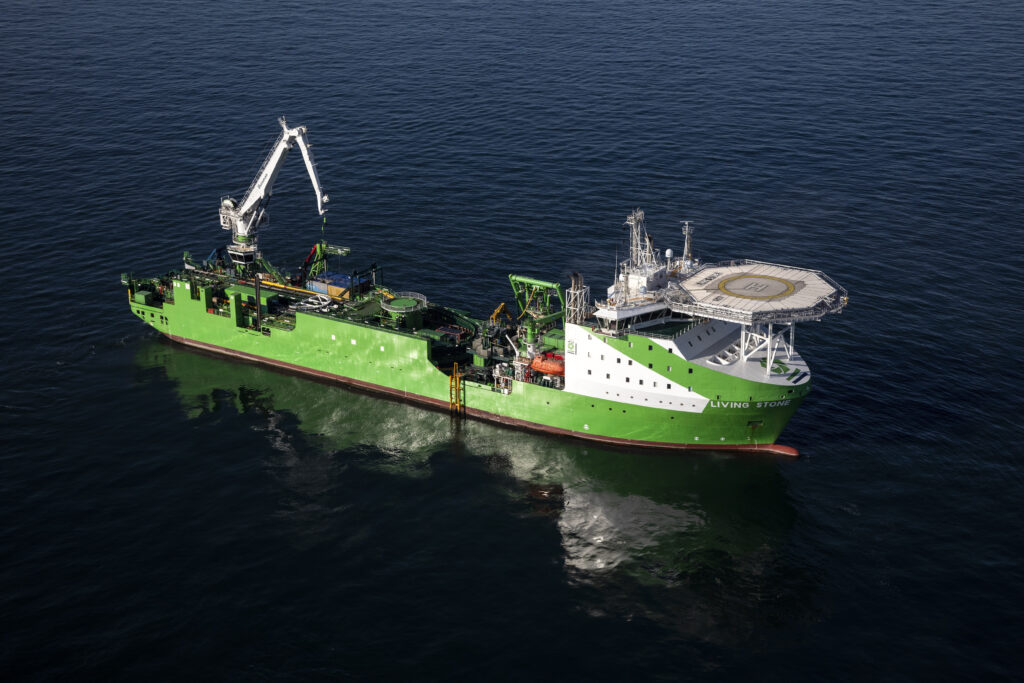DEME has secured a contract for transporting and installing inter-array cables and secondary steel at the 800 MW OranjeWind offshore wind farm in the Netherlands.
Beginning in the latter half of 2026, DEME will utilize offshore and cable installation vessels, a hopper dredger, a fallpipe vessel, and other supporting equipment.
According to DEME’s definition, the contract value ranges from EUR 150 million to EUR 300 million.
DEME will install 114 kilometers of inter-array cables, linking 53 foundations to the offshore substation in the Dutch North Sea. TKF will supply the cables.
The contract includes engineering, preparation, and support activities, with DEME providing a comprehensive solution to RWE and TotalEnergies, the developers of OranjeWind.
Pre-sweeping will occur at the wind farm site, 53 kilometers from the Dutch coast, ahead of cable installation to ensure cables are buried at the target depth in areas with significant sand waves.
At the offshore substation and existing asset crossings, cables will be stabilized with rock.
The secondary steel scope involves transporting and installing boat landings, access platforms, and internal platforms at monopile foundations.
“With our diverse offshore fleet and specialized equipment, we are well-positioned to deliver this project successfully. We will collaborate closely with the RWE and TotalEnergies joint venture. The project benefits from DEME’s extensive cable installation experience, especially in the dynamic seabed environment at the wind farm location,” stated Philip Scheers, General Manager Subsea Power Cables at DEME.
Located approximately 53 kilometers off the coast of IJmuiden, the OranjeWind wind farm will feature 53 V236-15.0 MW wind turbines.
RWE acquired the Hollandse Kust West (HKW) VII site in a 2022 tender, with TotalEnergies joining the project in July 2024.
Offshore construction is set for 2026, with full commissioning anticipated in early 2028.
This is DEME’s fourth cable project in recent months. DEME secured two contracts from Prysmian for engineering and installation on TenneT’s IJmuiden Ver Alpha and Nederwiek 1 offshore grid systems. Additionally, a consortium of DEME and Hellenic Cables received a contract for high-voltage subsea cables at Princess Elisabeth Island in the Belgian North Sea.
“`
Original Story at www.offshorewind.biz
